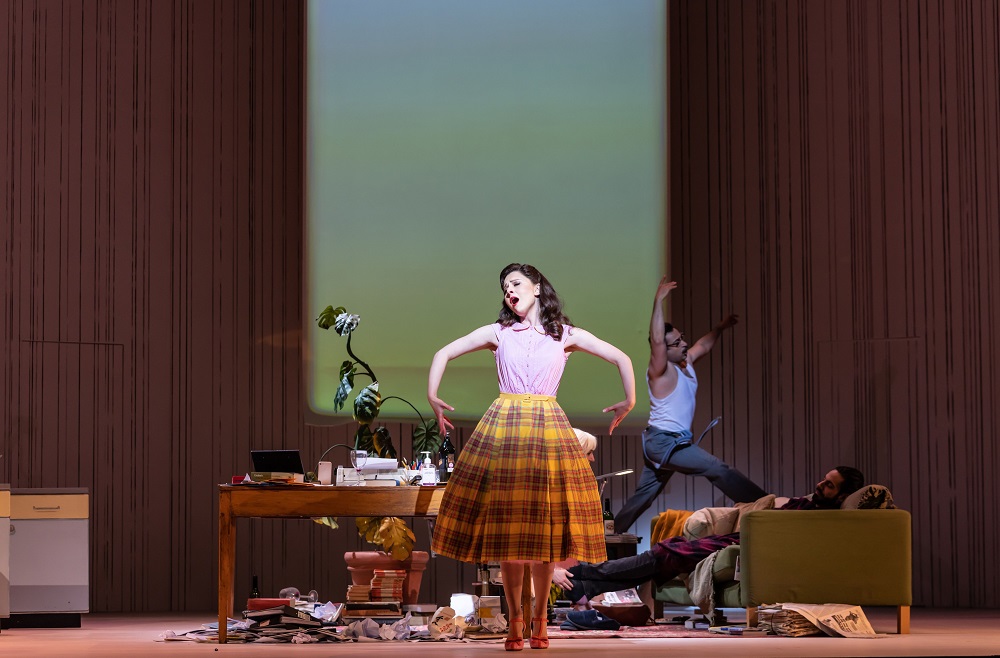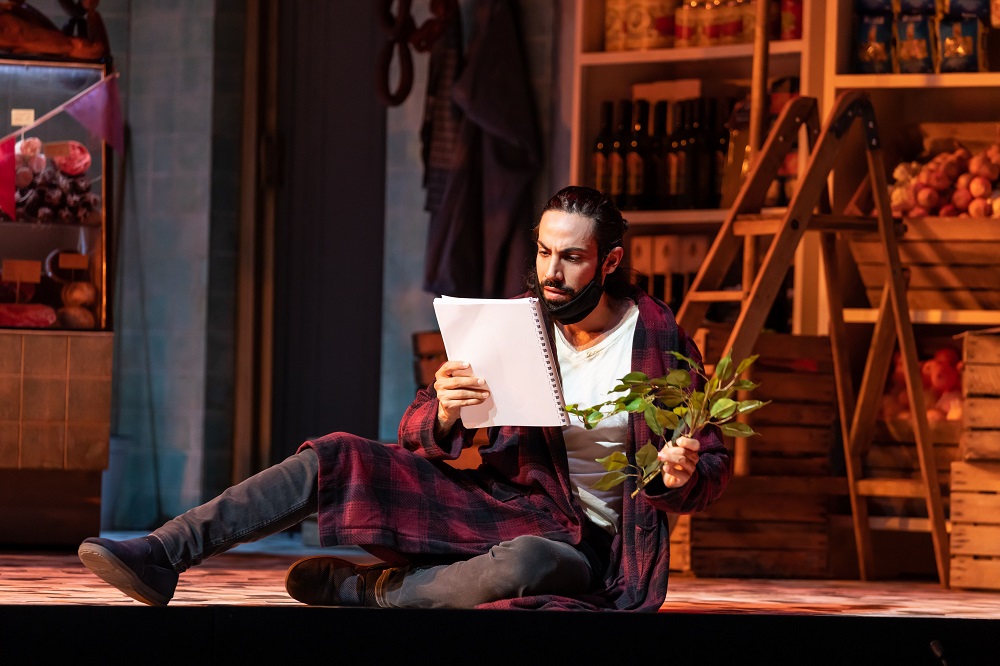The new Glyndebourne production of Rossini's Il turco in Italia has a truly winning smile on its face and a spring and a dance in its musical step. It is brimful of fun and good ideas, conveying the sense that a lot of joy has been had in its making. As one cast member tweeted during rehearsals a couple of weeks ago: "I have not stopped laughing and living my best life all day."
That sense of joy definitely isn’t confined to the cast; the audience were clearly loving every moment of it at last night’s premiere, and with good reason. Once this production has had its 13 performances this season, it is bound be welcomed back early and often into the repertory of the East Sussex house.
A lot of thought, of supplemental comic business and detail have been added to this Turco. But the remarkable thing is how additive the work and the ideas of director Mariame Clément and her creative team are, how much fun can be had from setting action in 1950s Italian neorealism, amid Julia Hansen’s lively and vivid designs.  There is also a palpable sense of trust and teamwork about the whole venture that have helped carry this production gleefully through its preparation amidst all the extra exigencies of the pandemic. It is not just strongly cast; the overlay of plenty of comic business, and thinking and explanation seems to have lightened the burden on the principals. Rather than having responsibility for carrying Turco’s clunking plot forwards, they can just enjoy themselves.
There is also a palpable sense of trust and teamwork about the whole venture that have helped carry this production gleefully through its preparation amidst all the extra exigencies of the pandemic. It is not just strongly cast; the overlay of plenty of comic business, and thinking and explanation seems to have lightened the burden on the principals. Rather than having responsibility for carrying Turco’s clunking plot forwards, they can just enjoy themselves.
At the heart of the casting is a strong musical performance from Elena Tsallagova (pictured above with Rodion Pogossov as Don Geronio), exemplified by the way she takes command of the shifting moods of the duet with her husband, “Per piacere alla signora”. In its first section, she comically lands a huge helping of pasta in a bowl, perfectly timed to fit a musical pause. In the second, she touches the heart with “No, mia vita, mio tesoro”. As she has said in an interview: “I wanted to make character sincere.” She does. In the third, the dance literally and comically takes hold of the proceedings.
That lightness comes from conductor Sesto Quatrini and the reduced forces of the London Philharmonic Orchestra, who are particularly good at bringing out the dance in the music, and in giving it a real sense of light and shade. There were occasional discrepancies between the (socially distanced) pit and the stage, but these are bound to be ironed out as the run progresses.  The role of the poet Prosdocimo who shapes the plot has been expanded. He has been given an assistant (a silent role, "Girlfriend", for actor Anna-Marie Sullivan). She serves as a reminder of how many male writers have had their work shaped by the supportive presence of loyal women in the background: Stefan Zweig, Erich Kästner and John Le Carré come readily to mind. Prosdocimo is very well sung and characterized by Italian baritone Alessio Arduini, on Glyndebourne debut (picture above). As the evening progressed, I couldn’t help noticing that his proprietorial gaze was more and more resembling – whether deliberate or subconscious – that of the character Hicham Janowski as played by Assaad Bouab in the TV series Call My Agent.
The role of the poet Prosdocimo who shapes the plot has been expanded. He has been given an assistant (a silent role, "Girlfriend", for actor Anna-Marie Sullivan). She serves as a reminder of how many male writers have had their work shaped by the supportive presence of loyal women in the background: Stefan Zweig, Erich Kästner and John Le Carré come readily to mind. Prosdocimo is very well sung and characterized by Italian baritone Alessio Arduini, on Glyndebourne debut (picture above). As the evening progressed, I couldn’t help noticing that his proprietorial gaze was more and more resembling – whether deliberate or subconscious – that of the character Hicham Janowski as played by Assaad Bouab in the TV series Call My Agent.
There are other characterful and strong voices too. The two rivals Rodion Pogossov as Geronio and Nahuel Di Pierro as Selim are well-contrasted. Mezzo Désirée Baraula brings a warm tone and a strong presence to the role of Zaida. And Michele Angelini made a mark by his careful etching of the character of Narciso, from a self-satisfied tug of his own lapels in his opening aria to his bleaker moments of self-doubt later.
This Turco could – indeed should – become a Glyndebourne staple, possibly even a classic.














Add comment